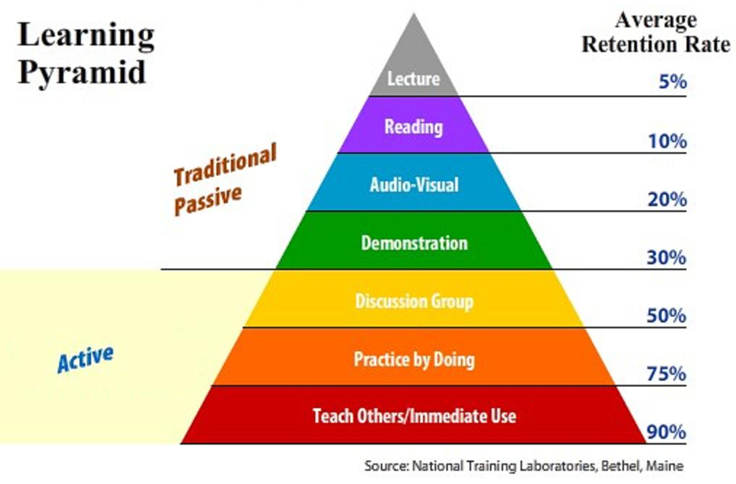Coaches also add that, as their careers progress, it’s essential to keep up to date with the latest in both psychology and business.
Karol M. Wasylyshyn7 writes:
Talented executive coaches must be grounded in both business and psychology. Coaches who have not had training in psychology or in a related behavior science are less likely to be successful in handling referrals where an executive must change a deeply entrenched and dysfunctional behavior pattern.
There are certain general psychological skills essential for effective coaches. These skills include interpersonal effectiveness, listening, and empathy for widely differing groups, patience, adaptability, analytical problem solving, creativity, and humor. While coaches from a range of disciplines can possess these skills, there are coaching engagements that require the specific expertise of professionals who have been trained clinically – especially if sustained behavior change is the desired outcome.
In referring to non-psychologist coaches, Berglas (2002) stated,
By dint of their backgrounds and biases, they downplay or simply ignore deep-seated psychological problems they don’t understand. Even more concerning, when an executive’s problems stem from undetected or ignored psychological difficulties, coaching can actually make a bad situation worse. ª
Regarding business, psychologists who have not held business roles must amplify their business knowledge over time and through the interplay of experiences in different companies, industries, and global sectors, and by immersing themselves in the business literature, as well as germane training experiences.
According to Dr. Steven Berglas who is an executive coach on the highest spheres:
The greatest barrier to effective organizational functioning is unresolved conflict. An executive coach functions as a neutral facilitator to help identify and assist in the constructive “airing” of interpersonal conflicts in contexts constructed to reduce anxiety and maximize win:win negotiations.
A personal coach to help your most promising executives reach their potential–sounds good, doesn’t it? Executive coaches can make a bad situation worse. Because of their backgrounds and biases, they ignore psychological problems they don’t understand. Companies need to consider psychotherapeutic intervention when the symptoms plaguing an executive are stubborn or severe. Executives with issues that require more than coaching come in many shapes and sizes8
Provide guidelines about some psychology trainings useful for the executive coaching:
Wasylyshyn has words of inspiration for psychologists who may want to explore the field:
Coaching is more than just a business opportunity for psychologists, she says. It’s an opportunity for psychology to help humanize the workplace at a time when it has become very Darwinian.9
Some of the important psychological trends that are relevant to executive coaching are:

Learning theories:
They are conceptual frameworks that describe how information is absorbed, processed, and retained during learning. Cognitive, emotional, and environmental influences, as well as prior experience, all play a part in how understanding, or a worldview, is acquired or changed, and knowledge and skills retained.10
Positive Psychology:
Positive Psychology is the scientific study of the strengths and virtues that enable individuals and communities to thrive. Positive psychology is primarily concerned with using the psychological theory, research and intervention techniques to understand the positive, adaptive, creative and emotionally fulfilling aspects of human behavior.11
Cognitive behavior therapy known as CBT:
Mainstream CBT helps individuals replace
maladaptive… coping skills, cognitions, emotions and behaviors with more adaptive ones,
by challenging an individual’s way of thinking and the way that he/she reacts to certain habits or behaviors, but there is still controversy about the degree to which these traditional cognitive elements account for the effects seen with CBT over and above the earlier behavioral elements such as exposure and skills training.12
Conclusion:
It has been my intention to provide as much information as possible so whoever is thinking of executive coaching as a career is provided with the extent of knowledge and experience required about business and psychology as well as coaching.
There is nothing that summarizes better what I tried to expose in this research paper that the words of Sandra Shullman, PhD, chair of APA’s Executive Coaching Work Group, an effort of the Board of Professional Affairs:
Executive coaching is a workplace trend and a trend in psychology.
ANNEX:
Leila Youssef: A coach who has trained as a psychotherapist:
I studied in a humanistic body oriented psychotherapy school in Spain (Bioenergetics, Gestalt, Reich). I worked one to one and with groups for over 20 years. I am now a member of the EABP (European Association of Body Psychotherapy). I would like to share with you that having this incredible experience gives me a great advantage from session one because
I am available to train whoever is interested in this type of training.
My email is: askleilanow@gmail.com
Recommended Readings:
- “Psychology of Executive coaching, theory and application” written by Bruce Peltier.
- “Becoming an Exceptional Executive Coach: Use Your Knowledge, Experience and Intuition to Help Leaders Excel." Written by Robert J. Lee, PhD.
- This article introduces a theoretical foundation to coaching based on brain function. It highlights some of the current findings about the neuroscience of attention, insight, reflection and action, through interviews with a leading neuroscientist.13
- Neuroscience and coaching: This course is at the cutting-edge of the intersection of brain science and people development.
Coaching for Performance, John Whitmore 2002ª
http://jom.sagepub.com/content/31/6/829.short#aff-2
http://www.creativeleading.com/executive-coach.html
http://www.karolwasylyshyn.com/pdf/executive_coaching.pdf
http://hbr.org/product/very-real-dangers-of-executive-coaching/an/R0206E-HCB-ENG
http://www.apa.org/monitor/apr02/executive.aspx
http://www.learningandteaching.info/learning/experience.htm
http://en.wikipedia.org/wiki/Positive_psychology
https://en.wikipedia.org/wiki/Cognitive_behavioral_therapy